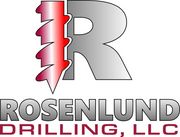What to Know Before Buying a Home With a Well

There are many elements to consider when buying a home, so it's typical to overlook one of the most important: the water supply. If you're considering a property in a rural area, it's likely that it has a private water well system. While the arrangement offers many benefits, an inspection is necessary to identify any potential obstacles. Here's a closer look at what you need to know before finalizing the purchase.
Water Quality
Well water undergoes a natural filtration process through the soil and sediment. As such, it picks up elements and chemicals along the way, which can impact the taste and safety. For that reason, complete water testing and analysis is necessary to determine possible contaminants.
If potential issues are found, don't rule out the property straight away. Many problems are easily rectified with the right setup. For instance, installing a water softener can rectify high mineral content, like calcium or iron. A filtration system, on the other hand, can handle many chemical impurities.
Storage Capacity & Flow Rate
 Not only do you need safe water, but you also need a system that can keep up with your home's demands. The average person uses between 80 and 100 gallons of water each day. Multiply the higher usage—100—by the number of individuals in your household to determine your minimum storage capacity needs.
Not only do you need safe water, but you also need a system that can keep up with your home's demands. The average person uses between 80 and 100 gallons of water each day. Multiply the higher usage—100—by the number of individuals in your household to determine your minimum storage capacity needs.
For flow rate, estimate the gallons-per-minute rate of your family's most-used appliances at the new property. The potential usage varies drastically by fixture and age. For example, an older appliance may use up to five gallons per flush while a low-flow showerhead only needs around two GPM. If your household commonly utilizes multiple water fixtures at once, then you need a system that can keep up or you could run out of water.
Placement
The location of the system can impact its future safety. If there's a private water supply, then it's likely the property also offers private sewage. As with a well, a septic tank relies on the ground for filtration. However, if it's located too close to your well, it can contaminate the drinking water.
Typically, properties need at least an acre to safely harbor both a water well and a septic tank. If there's less area, you may want to consider another home. When there's more acreage available but the two systems are too close, install a new system at the correct distance.
Have your eyes on a property with a water well system? Know what you're working with with the help of Rosenlund Drilling, LLC. For over 40 years, the fully-licensed and bonded business has served the needs of residents across Elko County, NV. The full-service team handles every aspect of well ownership, from drilling to testing. Review their offerings online, and request a service today at (775) 753-7960.
About the Business
(2 reviews)
Have a question? Ask the experts!
Send your question

